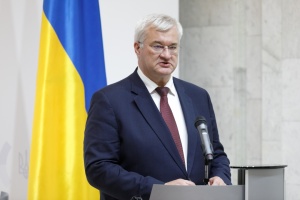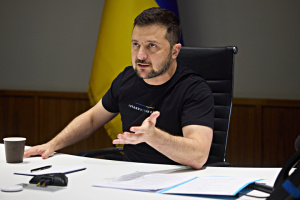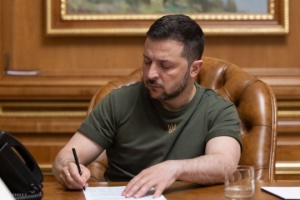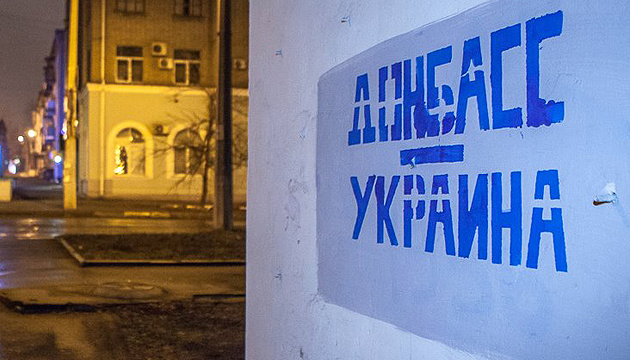
To recognize or not to recognize: Putin has only two options for “LPR/DPR”
The State Duma Committee on CIS Affairs, Eurasian Integration, and Relations with Compatriots endorsed two versions of the draft resolution to appeal to the Russian president to recognize the self-proclaimed entities in Donetsk and Luhansk regions as “people's republics.”
But what’s the difference between these two drafts? In fact, there is none.
As for the first project, the motion was filed by the Communist Party. In case it’s adopted, it will be immediately forwarded to the president.
The second draft was sponsored by Putin's United Russia faction. It lays down the same, only following consultations with the Foreign Ministry "on compliance with international agreements, including the Minsk accords."
"Both drafts will be tabled for vote in the State Duma on February 15. First, they will pass a rating vote, and whichever gets the most votes will be adopted and forwarded to Putin," State Duma Speaker Vladimir Volodin wrote on Telegram.
There is no doubt that the Duma will eventually vote one of them in. In the end, it doesn't matter which draft gets the most votes. The key thing here is that once the Duma still addresses Putin, the latter will have only two options: either to recognize the "republics" or not to recognize them (including by putting the issue on pause, delaying the decision for as long as possible, etc.).
So what are the consequences of each of these options and how will this affect Ukraine?
The Kremlin won’t set itself up like that - Putin won’t recognize the pseudo-republics
"On February 8, during Putin’s joint presser with Macron, it was stated that Russia would adopt no decisions that would violate the Minsk agreements. Therefore, such a rapid change of the Kremlin’s stance is unlikely. Most possibly, the issue will be put on hold. However, it is possible that Putin will try to exploit this situation to hold additional negotiations with the West," diplomat Vadym Triukhan told Ukrinform.
If Putin doesn’t approve the move, absolutely nothing will change for Ukraine. The fruitless negotiation process in the Normandy format and the Trilateral Contact Group will continue with varying degrees of success for many years to come.
"However, there will be no progress until the balance of power in the region changes, until ‘sanctions from hell’ are applied, and as long as Putin is in power. Russia won’t give us back the occupied part of Donbas. They have invested too much in this to just withdraw,” Mr. Triukhan is convinced.
Deputy chief of the Ukrainian Institute for Extremism Studies Bohdan Petrenko believes that the issue of Russia recognizing the so-called "LPR/DPR" today fails to meet the interests and goals pursued by Russia in relation of Ukraine, just as it was back in 2014.
"It is clear that statements of recognition can be used to ‘feed’ the inhabitants of the occupied territories, offering them hope that Russia doesn’t give up on them. Also, this could be used to intimidate Ukraine and the international community as part of the information war. But this is only about statements, especially at the official level. In reality though, recognizing the ‘republics’ would mean losing military leverage (there’s no other left) over Ukraine and recognizing the Minsk agreements as invalid."
The Kremlin is not interested in the war-torn part of these two regions, it’s interested in the whole of Ukraine. Today, unfortunately, Minsk is still believed to have no alternative, and even Ukraine’s Western partners insist on fulfilling its provisions.
"First of all, this is a populist issue that Russia has been manipulating for years. Some parties, thus, increase their electoral chances, others simply remind people of themselves, while some forces hop on the bandwagon depending on the most relevant agenda," says Oleksandr Kovalenko, a military-political columnist with the Information Resistance nonprofit.
Meanwhile, Russia’s current agenda is about pressure on and outright blackmail of both Ukraine and its international partners.
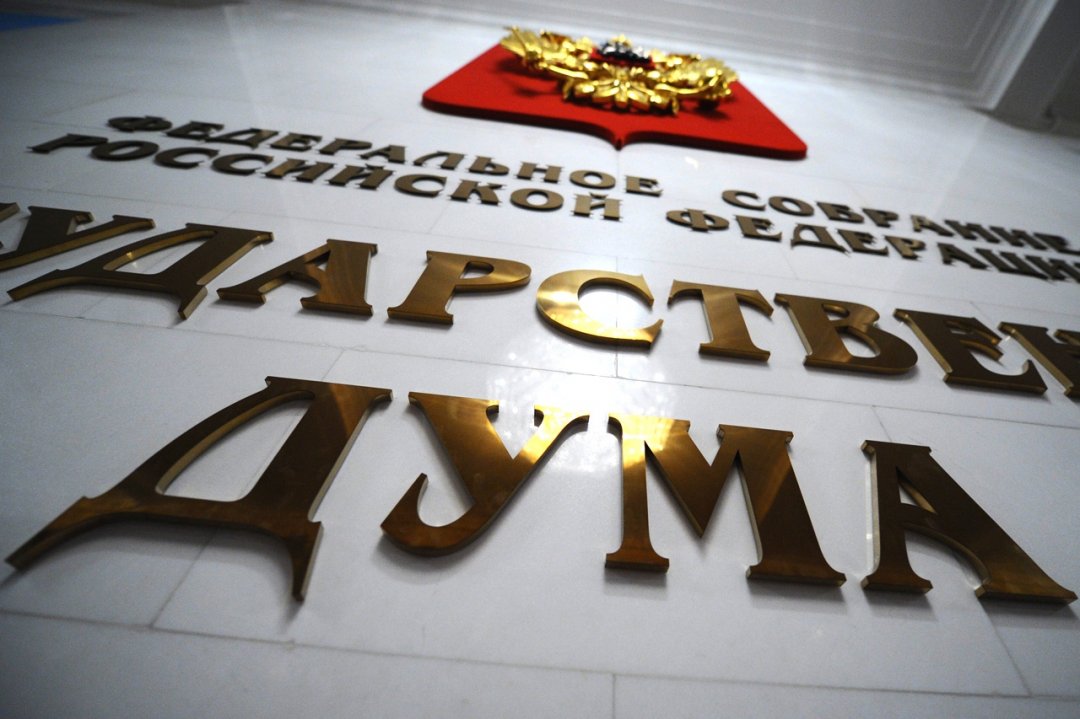
"So the topic of 'recognition' of the so-called 'DPR / LPR' or, for example, the official supply of weapons to the occupied territories is one such element of blackmail, which is just yet another one, for example, given the latest escalation near Ukraine's borders," the pundit added.
But Moscow is well aware that such a decision, if taken at the highest level, carries a threat of appropriate measures in the form of economic and political sanctions.
"Assessing such risks, despite the move passing various stages toward the top, Putin will refuse to recognize (the ‘republics’ - ed.),” says Mr. Kovalenko.
It should be noted that none of this will affect Ukraine in any way.
“This kind of ‘recognition’ has absolutely no legal weight. After all, Russia did ‘recognize’ Abkhazia and South Ossetia, so what? The two regions remain outcasts on the world’s big map, drowning in poverty and hopelessness,” emphasizes Oleksandr Kovalenko. “So we couldn’t care less. But for Russia, this would mark the start of dark times. After all, by making the move, Russia would actually recognize itself as a party to the conflict, while failing to profit off of this. The international community is ready to impose additional restrictions on Russia, and such an adventure by the Kremlin, if they dare to bring it to a logical conclusion, will only accelerate the reaction on the part of the West.
But if Putin dares to recognize the "republics"?
Recognition of the independence of the so-called "LPR/DPR" would testify to the fact that the Minsk agreements are ultimately dead. And from the moment the decision is announced, Vadym Triukhan emphasizes, Ukraine will have no political or other reasons for further attempts to implement them.
"Yes, this will mean that the certain areas of Donetsk and Luhansk regions (CADLR) will long remain lost for Ukraine. As it was with Transnistria, South Ossetia, and Abkhazia, the Russians will freeze any talks on restoring constitutional order in those territories. Therefore, Ukraine should strongly protest if the State Duma approves its appeal to Putin. The situation should be used as an excuse to finally get rid of the Minsk agreements, which have been pulling the Ukrainian State down for eight years already,” the diplomat stressed.
If everything is apparent with the Minsk deal, it remains unclear what comes next. Obviously, the Ukrainian side will have to play ahead of the game, voicing clear proposals.
But what can these proposals be about?
After renouncing the Minsk deal, Ukraine should act in accordance with the international legal instruments at its disposal.
"Step one: call for consultations in accordance with the Budapest Memorandum. Step two: demand to deprive Russia of its veto right in the UN Security Council on all issues related to Russia's armed aggression against Ukraine. Step three: file (through partners) and consider a UN Security Council resolution that would include comprehensive sanctions against Russia, such as those imposed on Saddam Hussein's government after Iraq occupied Kuwait,” the international expert said. “And, finally, the fourth step. Initiate an international conference whose agenda would include issues of reforming the United Nations in order to turn it into an effective tool for preventing wars, as well as coercing into peace the nations that violate international law, including committing acts of aggression.
There is an opinion, which isn’t unfounded, that once "recognizing" the CADLR, not only will the Russian Federation start to supply military aid there, they may even accept them into the CSTO security bloc. The course of events may be as follows:
- The accession of pseudo-republics to the CSTO;
- The request of the so-called "DPR" and "LPR" under the CSTO mechanism to deploy troops in "their" territory;
- Ukraine's reaction to the introduction of Russian troops into its territory; and
- A full-scale Russian invasion of Ukraine as a reaction/defense of the so-called "LPR/DPR" under the CSTO deal.
As an "excuse," Russia would claim: "We did not attack anyone, we were forced to defend and fight in an alliance with the ‘DPR’ and ‘LPR’ against Ukraine within the CSTO."
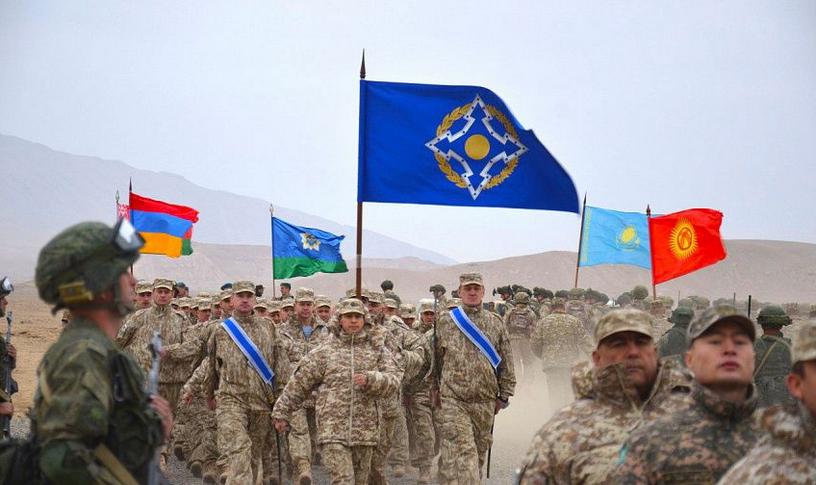
But how realistic does the option look?
It should be noted that the Russian-occupied Abkhazia and South Ossetia never joined the CSTO, although there was a revelant request from the latter. Here is what the head of the Russian Foreign Ministry Lavrov said in 2008: “Firstly, this is impossible because one has to be a country, a country recognized by all members of an organization, to become part of the CSTO. What are the prospects of Abkhazia and South Ossetia’s independence being recognized by other states? I think this will be a slow process."
"In fact, there is a good chance that Russia will recognize the ‘LPR/DPR.’ And, most likely, it will be not only the recognition, but also arms supplies, as well as, perhaps, even the involvement of troops. In principle, this is a logical development, given that the Kremlin must somehow save its face in getting out of the current deadlock. Otherwise this would be a geopolitical loss. No one will accept separatist formations into the CSTO, of course, but there is another risk, too," said Hlib Parfionov, a security policy coordinator with the Center for Political Studies.
As for the risks, the expert continues, if the Russian forces are officially involved on the demarcation line, any strike targeting them would be declared as an act of aggression on the part Ukraine.
"That's why the situation is really complicated. And the question is rather about how Kyiv will react when the Russians officially appear on the line of demarcation. In fact, they will be revisiting the scenario of their war with Georgia, trying to provoke us to retaliate," said Mr. Parfionov.
Political scientist Mykhailo Basarab also spoke in a similar vein. According to the expert, after Russia recognizes the "DPR" and "LPR," "peacekeepers" sporting blue helmets will inevitably and immediately emerge there.
"It can all happen on very short notice. This threatens to become an official standoff between the Armed Forces and Russian troops along the line of demarcation, which would be recognized by the Russian government. In Donbas, the probability of an unconcealed armed confrontation between Ukraine and Russia will increase, with all possible implications thereof. We will not have to wait long for provocations,” the political scientist claims. “Russia will use the background of this new tension for imposing new demands on Ukraine, say, regarding our compensation to CADLR for the losses incurred by the war."
What are the new opportunities for Ukraine? In addition to officially burying the Minsk deal, Moscow's new aggressive step would offer Ukraine a justification of the need for security integration with NATO as soon as possible.
"That’s to prevent a major continental war," Mr Basarab said.
So what do we have in the end of the day? Recognizing the “LPR/DPR” looks like an extreme option for Moscow today, at least for the moment. Ukraine could see both positive and negative consequences of Putin's possible decision in favor of “recognition.” Among the advantages is that our country will finally get rid of the obligations imposed at gunpoint within the framework of the Minsk accords. Such a decision by Russia may push the international community to impose additional restrictions on them. On the other hand, a new phase of confrontation may begin – both on the line of demarcation in Donbas and on the Ukrainian-Russian border.
However, the Ukrainian Army is now more ready than ever to respond to any developments. Let us quote the joint statement of the Minister of Defense and Commander-in-Chief of the Armed Forces: “Have no doubt – the Armed Forces are absolutely ready to fight back and will not give up Ukrainian lands! The Armed Forces are ready to meet the enemy – not with flowers, but with Stingers, Javelins, and NLAWs. Welcome to hell!”
Myroslav Liskovych, Kyiv


